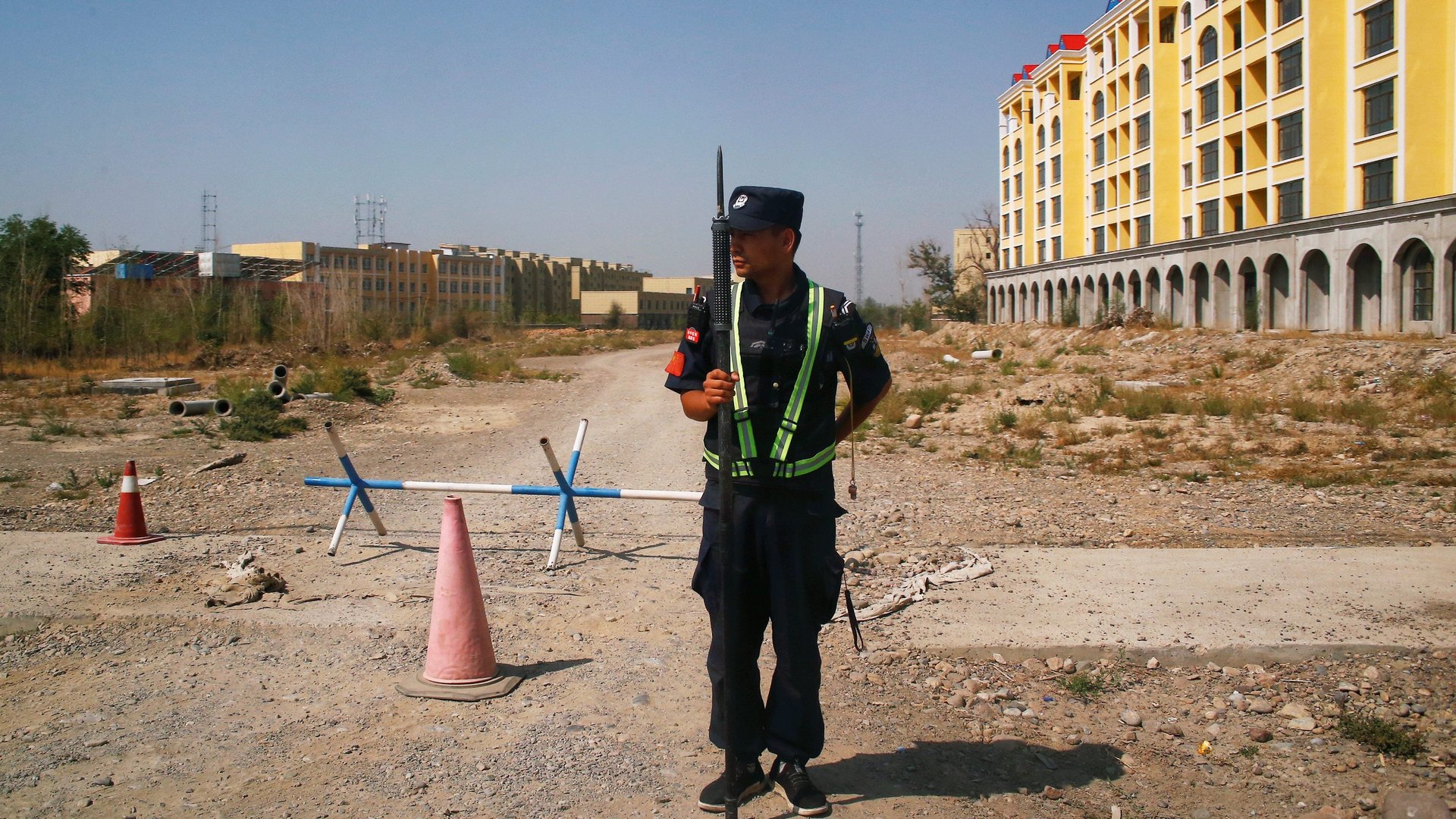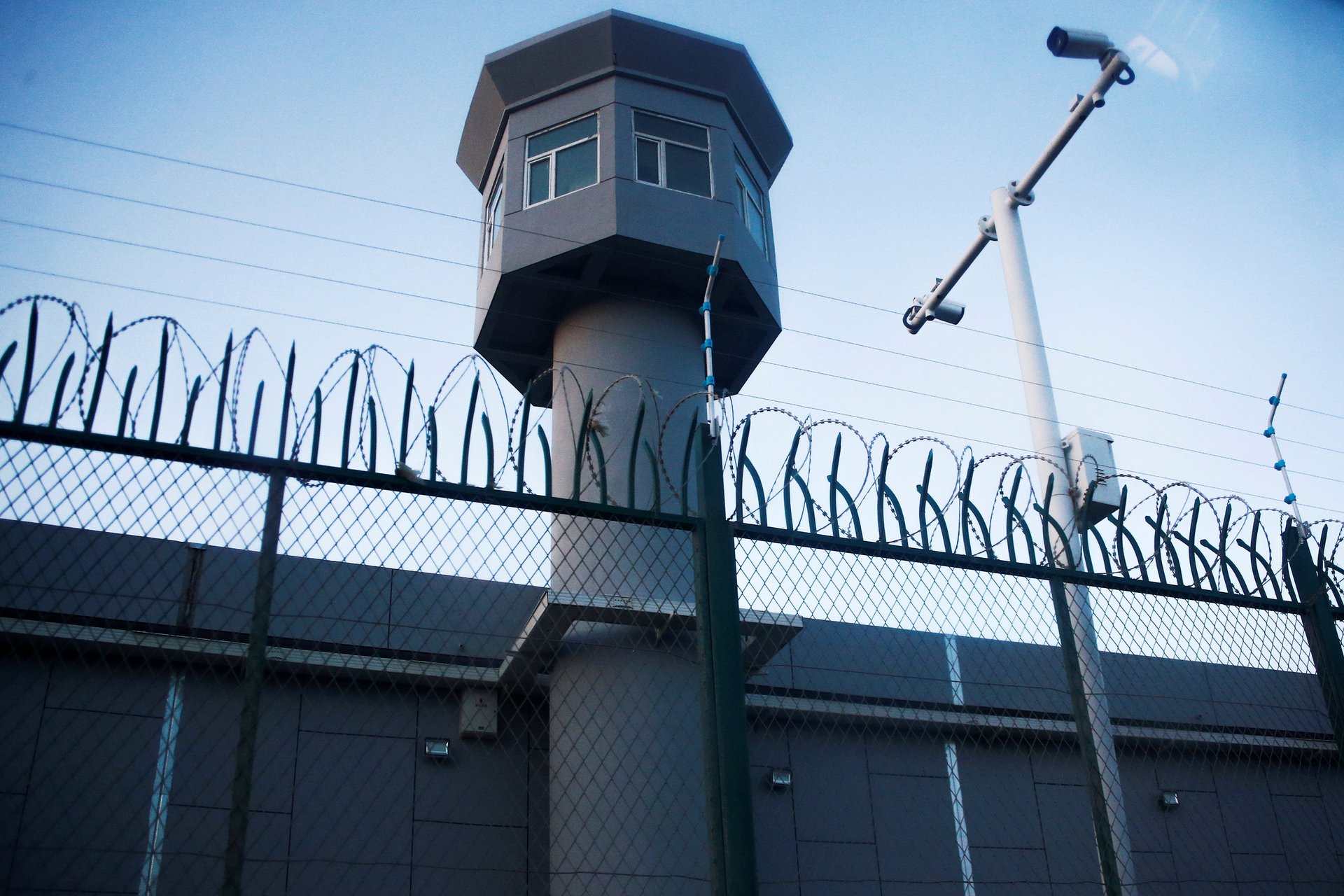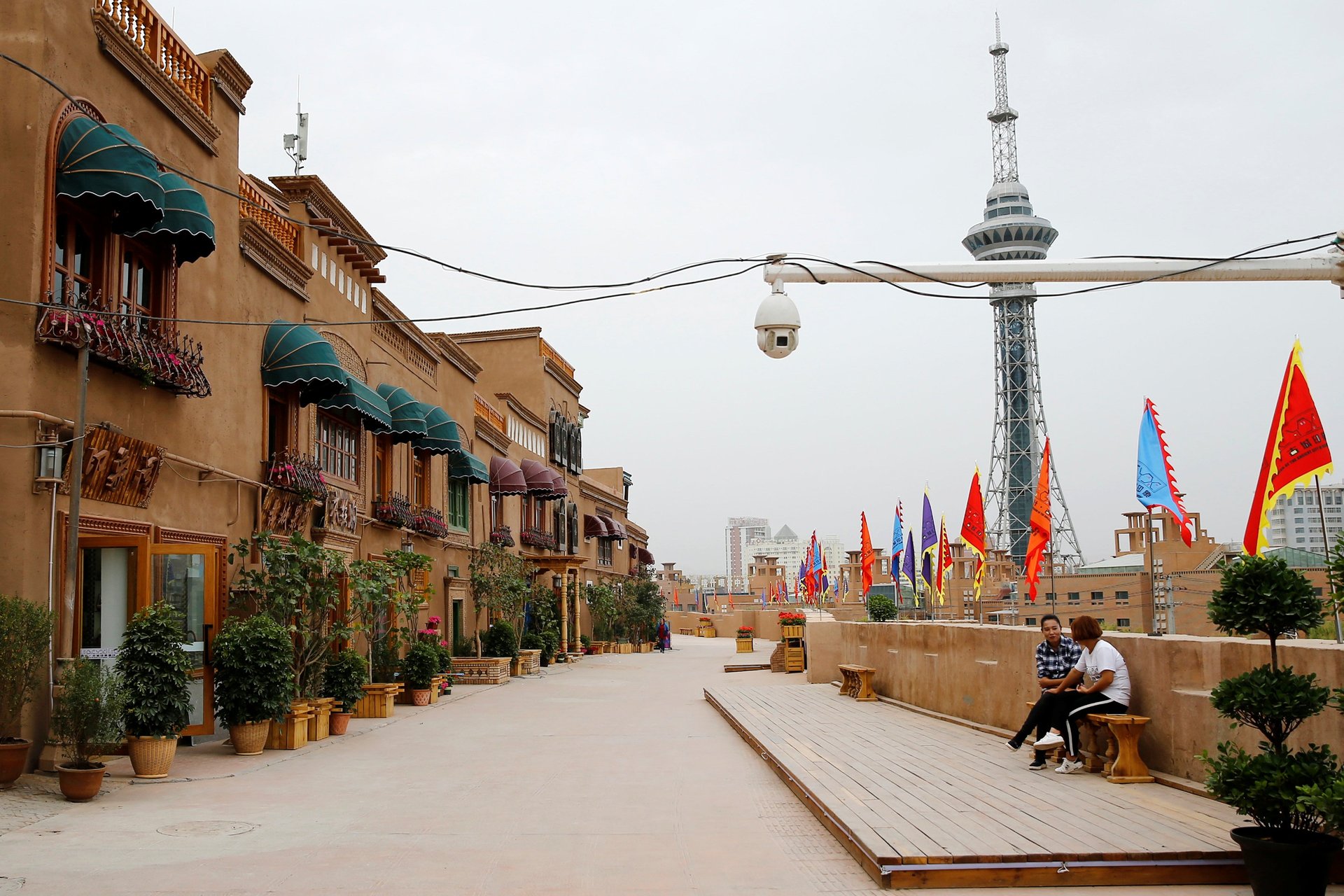More than 1 million Muslims are detained in China—but how did we get that number?
Numerous numbers of ethnic Uyghur Muslims are being held by Chinese authorities in western China’s Xinjiang under the guise of “re-education” against extremist thought—and the search for an accurate number of those detained remains elusive.


Numerous numbers of ethnic Uyghur Muslims are being held by Chinese authorities in western China’s Xinjiang under the guise of “re-education” against extremist thought—and the search for an accurate number of those detained remains elusive.
The tightening control of a region home to one of China’s largest ethnic minorities deepened in the wake of deadly ethnic riots that broke out a decade ago on July 5, following a police crackdown on a protest calling for an investigation into a workplace brawl in southern China that left two Uyghurs dead. Some 200 people were killed as longstanding local grievances—over preferential treatment for people from the Han majority who migrated to Xinjiang—boiled over. In subsequent years, deadly attacks in other parts of China were blamed on the Uyghurs.
In the decade since, the far western region has seen a growing crackdown and intensifying surveillance, ostensibly to combat extremism. The region posted jobs for 100,000 security personnel in a single recent year alone. Authorities track every vehicle in the region (paywall), collect DNA from residents, seize passports, and use technology to monitor individual routines—or deviations from them.
In 2017, rights groups and news organizations began surfacing the existence of detention centers where local residents were being dispatched. China at first denied the existence of such camps, and later said they were vocational centers offering Chinese language and cultural lessons, and work-related training. Uyghurs who’ve escaped claim “brainwashing” and psychological torture, including engaging in practices contrary to Islam.
In the tightly-controlled information system that is China, journalists and independent researchers have almost no access to the region—but that hasn’t stopped scholars, rights groups and members of the Uyghur diaspora from arriving at estimates of the numbers of camps and their residents. They rely on leaked information, analysis of security spending, and satellite imagery, as well as accounts from individual families.
“It is important to keep a balance between not underestimating the scale of this atrocity, and not throwing around highly speculative figures that have essentially no empirical basis,” Adrian Zenz, a social sciences lecturer at Germany’s European School of Culture and Theology whose work has drawn attention to the detentions and conditions in the camps, told Quartz. “Inflated estimates easily border on sensationalism and seriously impact our credibility.”
The first numbers
In January 2018, US-funded news organization Radio Free Asia (RFA) reported one of the first estimates: 120,000 Uyghur Muslims detained for showing signs of “extremism,” sourcing a security official from Kashgar city. The Xinjiang region has a population of 22 million with about 10 million Uyghurs—including other ethnic minorities, that puts the Muslim Turkic-speaking population closer to 12 million.

The estimate used most widely for over a year—of a million Uyghur Muslims held in Chinese camps—was arrived at using similar methods by a group called China Human Rights Defenders (CHRD), and by Zenz.
CHRD, based in Hong Kong and Washington DC, interviewed dozens of Uyghur people in Xinjiang. Interviewees gave estimates of how many people—ranging from 8% to 20%—were being detained in their towns. It averaged out to 12% and CHRD bumped the percentage down to 10% for a conservative estimate, ultimately giving them 1.1 million Uyghur Muslims imprisoned. CHRD also found that up to 20% of Uyghur villages are required to attend “re-education” courses during the day, adding millions more Muslims affected by China’s campaign.
Zenz found similar numbers through different sources.
A media organization run by Uyghur exiles published a document (link in Japanese) on partial detainee numbers for dozens of Xinjiang counties, reportedly leaked by someone within the public security industry in the region. Zenz concluded there was a detention level of 12.3% in counties with majority Uyghur and other Turkic populations.
Zenz went on to refer to two RFA reports that cited phone interviews the news organization had with Xinjiang government offices regarding quotas to meet—10% of the local Muslim population—within each district. RFA also reported a case where a district was ordered to detain 40% of Muslims.
Figuring differential internment rates—10% for areas that have a majority Muslim population and 5% for places with a minority population—Zenz estimated 1,060,000 Muslims detained in September 2018. He also notes the detentions started earlier than 2017. One southern Xinjiang village saw over 6% of the population—or over 9% of the adult population—detained for “transformation through education” as early as 2016, according to a government report he found.
He was mindful of the perils in the information he was working off, writing, “this estimate is of course predicated upon the supposed validity of the stated sources.” (The website ChinaFile offers a more detailed description of how Zenz arrived at his estimate.)
The 1 million figure went into wide circulation after it was used by the United Nations in August 2018, citing the work of the CHRD. The UN Committee on the Elimination of Racial Discrimination (CERD) said up to 2 million Muslims, including other Muslim minorities, such as Kazakhs, and Uzbeks, along with Uyghurs, may be receiving re-education.
News organizations ran with it and 1 million quickly became the default number.
The number of camps is another story
Satellite images have also provided insight into how many may be detained. The Australian Strategic Policy Institute (ASPI) has compiled a sampling of facilities they believe are functioning as internment camps.
Agence France Presse concludes there were at least 181 facilities in October 2018, with the review of government documents. In the same month, Zenz estimated (paywall) there were 1,200. A University of British Columbia law student named Shawn Zheng is continuously verifying camps found off Google Earth—at times adding, at times subtracting facilities that get identified as having another purpose—with 94 as of June 29.
From the images, rough estimates on how many are held in the facilities are made with measuring square footage. This is tough to do with limited information; first, with the challenge in verifying the buildings by cross-referencing with local data as China’s censors quickly take the evidence down and, secondly, with little knowledge of how crowded camps are.

Where we are today
Scholar Zenz recently updated his estimate to 1.5 million detained in Xinjiang on March 13, while China still hasn’t released any numbers.
“Although it is speculative it seems appropriate to estimate that up to 1.5 million ethnic minorities—equivalent to just under 1 in 6 adult members of a predominantly Muslim minority group in Xinjiang—are or have been interned in any of these detention, internment and re-education facilities, excluding formal prisons,” Zenz said in March. “There is virtually no Uyghur family without one or more members in such detention, and a rising number of Kazakhs and other Muslim minorities are likewise affected.”
Updated satellite images show the camps expanding in size, alongside rising regional security finances and higher arrest numbers. Meanwhile, a Wall Street Journal report found that that numbers of registered Uyghur Muslims (paywall) living in Xinjiang have decreased for the first time in decades.
This May, the US Defense Department accused China of running “concentration camps” with up to 3 million Muslims imprisoned—a remark that drew censure from one of the most scrupulous documenters of the detentions.
The new number by the US is one of the higher numbers used by a government or international organization thus far. Last year, the State Department’s annual report on religious freedom (pdf) used estimates of 800,000 to more than 2 million Muslims in detention, citing media and NGOs.
Zenz said he believes the latest US figure adds together two different populations—those imprisoned and those who are attending part-time “re-education” programs while continuing their daily lives in Xinjiang.
“This must be distinguished from internment in camps, which is a much more serious matter,” Zenz said. “I consider speculations about part-time re-education figures to be highly problematic. Lumping them together with full internment is even more problematic.”
Academics, journalists, and human rights organizations have worked with the limited but specific evidence—amid clear perils and pitfalls on their validity—to bring forward strong estimates. Inflated numbers that aren’t grounded in careful estimates and concern for human rights risk jeopardizing their hard work.